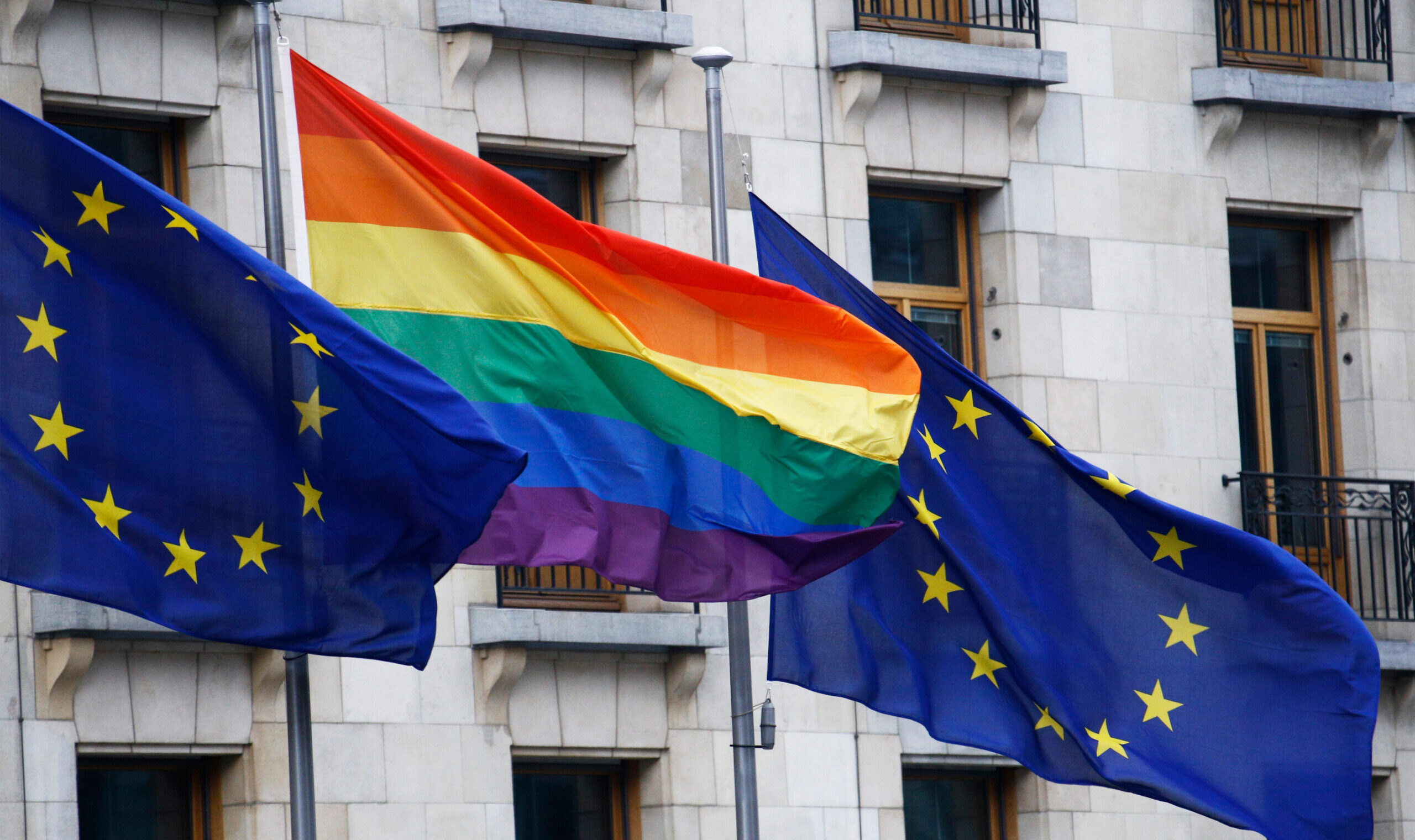


Loading the Elevenlabs Text to Speech AudioNative Player...
As the U.S. and Europe struggle to reset trade relations, secure greater European defense spending within NATO, and find a consensus on protecting free speech, a new woke trade treaty between the European Union and developing countries is set to worsen the discord in transatlantic relations.
The European Union (EU) handles trade issues for its 27 member states and 450 million citizens. With only 5.6 percent of the world’s population but a GDP of $20 trillion, the EU’s share of global trade is larger than that of the United States.
Trade between Europe and countries in Africa, Asia, and the Caribbean reached nearly $125 billion in 2023. Now, the EU’s new treaty with countries in these regions—known as the Samoa Agreement—is intended to establish a more expansive relationship with the developing world that goes far beyond market access.
The EU describes this treaty as “the overarching framework” for Europe’s relations with 79 countries and about 2 billion people—which would constitute the largest trading block in the world. (It was signed in 2023 but will not enter into force until it has been ratified by two-thirds of the 79 countries in the Organization of African, Caribbean, and Pacific States.)
Sensing an opportunity, ideologues within the EU bureaucracy have weaponized the agreement to pursue their progressive social agenda.
Thanks to them, this super treaty will compel culturally traditional countries to legally commit to European priorities on abortion and radical gender ideology under the guise of protecting human rights. It commits developing countries to “respect, protect, fulfil and promote all human rights, be they civil, political, economic, social or cultural.”
This is not the language of your typical trade deal. In international parlance, “economic, social and cultural rights” include housing, healthcare, social security, and a right to participate in cultural life.
The Samoa agreement also requires state parties to combat “hate speech and hate crimes, xenophobia and related intolerance.” Of course, as Vice President J.D. Vance noted in his speech in Munich this February, these kinds of hate speech laws are being used today in Europe to stifle political speech.
As anti-progressive populist pressures grow, especially in Germany and France, Europe’s establishment parties have doubled down.
Last year, France amended its constitution to include a right to abortion. Soon after, the new center-left Polish government sought the full legalization of abortion. They failed—but the EU bureaucracy nonetheless circumvented member states’ primacy over domestic social issues by codifying abortion as a fundamental right.
That issue nearly derailed the signing of the treaty.
Most countries in the developing world maintain strict restrictions on abortion, which is not among the human rights codified in international law. But the Samoa Agreement repeatedly references the need for parties to commit to “sexual and reproductive health and rights.” The treaty doesn’t define this term, but the UN and its various organs routinely use it to encompass abortion.
Clearly, this trade deal is a vehicle for Europe to impose these norms on the developing world. It would both usurp the sovereign right of these countries to determine their own domestic policies on life, family, and religious values, and require them to vote with the EU in international fora.
Once ratified, the treaty would also isolate the U.S. and block current efforts by the Trump administration to strike bilateral trade agreements based on “U.S. values, sovereignty, and security.”
And all this at a time when the transatlantic rift on social issues is widening.
Just days into President Donald Trump’s second administration, Secretary of State Marco Rubio renewed the United States’ membership in the Geneva Consensus Declaration (GCD), rejoining 34 other countries in a commitment to promote women’s health, defend human life at all stages, and strengthen the family.
But the Samoa Agreement runs diametrically opposed to the GCD. Worse, it will force GCD parties to terminate their membership in the pro-life entity to protect their access to Europe’s massive markets.
This could also jeopardize future U.S. foreign aid programs. If recipient countries are bound by the EU’s embrace of sexual rights—now broadly defined to include rights based on sexual orientation and gender identity—they will likely be excluded from aid based on the new anti-woke policies of the Trump administration.
After initially refusing to sign the treaty because of its abortion and LGBT requirements, conservative EU members Hungary and Poland relented. Today, the only holdouts are Cuba, Equatorial Guinea, and South Sudan (though some governments that have signed are getting pushback from their citizens).
Fortunately, all is not lost.
Led by Italy’s Prime Minister Giorgia Meloni, conservative forces in Europe are winning stronger representation within EU institutions as right-populists who reject progressive extremism gain power in member states. And Trump’s reelection has given them a powerful ally in resisting Europe’s neocolonial imposition of social policies.
As the White House pursues trade negotiations with the EU, it should demand that the Samoa Agreement’s socially progressive obligations be terminated—we can’t allow the creation of a massive anti-U.S. woke trading behemoth.
